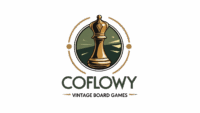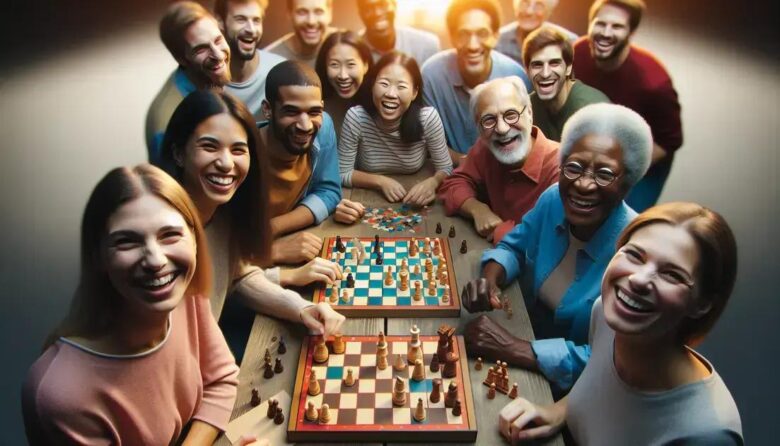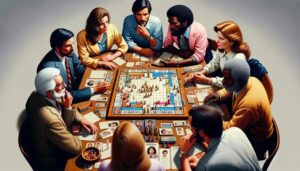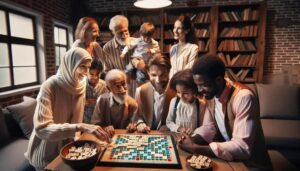Vintage board games social skill development enhances communication, empathy, and cooperation by engaging players in interactive, face-to-face gameplay that promotes social learning through turn-taking, collaboration, and respectful interaction.
Vintage board games social skill development might sound old-school, but it’s surprisingly powerful. Ever noticed how a simple game can turn shy folks into chatty teammates? Let’s see how classic games can quietly teach us all the art of getting along.
understanding social skills through vintage board games
Social skills are essential for effective communication, empathy, and cooperation. Vintage board games provide a hands-on platform where players naturally practice these skills. When players gather around a board, they engage in activities that require turn-taking, active listening, and understanding others’ perspectives.
Games like “Monopoly” or “Scrabble” encourage players to negotiate, plan, and respond thoughtfully to others’ moves. These interactions build emotional intelligence by fostering patience and perspective-taking. Players learn to manage winning and losing gracefully, which is vital in real-life social situations.
Furthermore, the face-to-face nature of vintage board games removes distractions common in digital play, allowing players to focus on non-verbal cues and build rapport. This direct interaction helps participants develop confidence in expressing ideas and resolving conflicts constructively.
Engaging with vintage board games regularly can strengthen communication skills and enhance the ability to connect with others, making them a valuable tool for social development across all ages.
key vintage games that enhance social interaction
Certain vintage board games stand out for their ability to foster social interaction. Games like “Clue,” “Ticket to Ride,” and “The Game of Life” require players to communicate, strategize, and sometimes collaborate, which enhances their social skills. These games encourage players to ask questions, share information, and negotiate outcomes.
In “Clue,” players use deductive reasoning and share clues while discussing possibilities, which boosts conversational skills and critical thinking. “Ticket to Ride” promotes friendly competition as players plan routes and anticipate opponents’ moves, fostering strategic thinking and patience. “The Game of Life” simulates real-world decisions and interactions, encouraging players to discuss choices and handle unforeseen events together.
Turn-taking is a significant aspect of these games, teaching players to be patient and respectful. Social cues like body language and tone of voice become apparent in such board game settings, allowing players to improve their interpersonal awareness.
By engaging repeatedly with these vintage games, players grow more comfortable in social environments, learning to express ideas clearly and respond to others thoughtfully.
how board games encourage empathy and cooperation
Board games often serve as a subtle yet powerful tool for fostering empathy and cooperation. When players engage in games that involve team goals or shared challenges, they learn to understand and appreciate others’ feelings and viewpoints. These experiences help build trust and strengthen relationships.
Cooperative games, such as “Pandemic” or “Forbidden Island,” require players to work together against the game itself. This shared objective encourages communication, active listening, and mutual support. Players develop patience and learn to offer encouragement during setbacks.
Empathy emerges as players consider how their actions affect teammates. Discussing strategies and negotiating turns enhance perspective-taking, making participants more aware of others’ needs and emotions.
Even competitive games can teach empathy by promoting respect for opponents and graceful handling of wins and losses. Understanding emotions in these settings helps players manage conflicts constructively and celebrate others’ successes.
Through repeated play, board games cultivate social skills that extend beyond the game table, fostering more empathetic and cooperative interactions in everyday life.
designing game sessions to improve communication
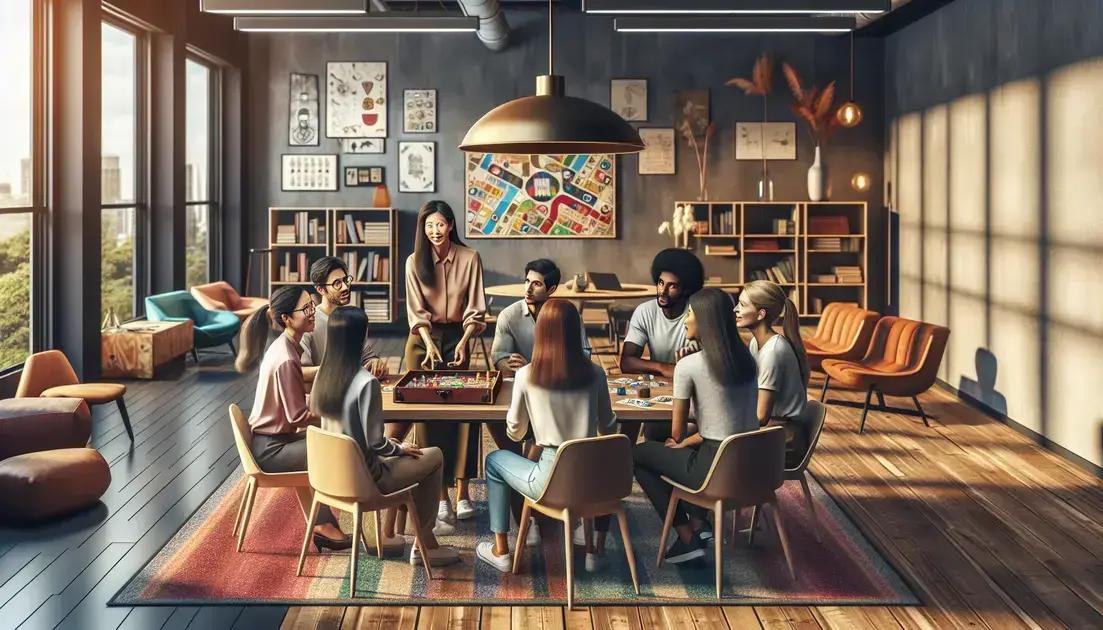
Designing effective game sessions to improve communication requires thoughtful planning and clear goals. Start by selecting vintage board games that encourage dialogue, turn-taking, and strategic discussion. It’s important to create a supportive environment where all players feel comfortable sharing their thoughts.
Setting clear objectives for each session helps keep interactions focused. For example, you might emphasize active listening or practicing polite disagreement. Establishing simple ground rules, like no interrupting and encouraging questions, can foster respectful conversations.
Facilitators can introduce guided prompts during gameplay to stimulate discussion. Asking players to explain their moves or predict others’ strategies invites deeper engagement and helps develop clarity in expressing ideas.
Incorporating breaks to reflect on communication successes and challenges allows players to become more aware of their social skills. Encouraging feedback helps participants recognize areas for growth while celebrating progress.
Finally, varying game formats and group sizes keeps sessions fresh and adaptable. Smaller groups can focus on detailed conversations, while larger groups teach skills like managing multiple voices and understanding group dynamics.
stories of social growth through classic board games
Many players have experienced significant social growth through classic vintage board games. These games often provide a safe and structured setting where individuals can practice and improve their communication and cooperation skills. For example, children who struggle with shyness often become more confident as they learn to express their ideas during gameplay.
One common story is about families using games like “Sorry!” or “Candy Land” to strengthen bonds. These games create moments for positive interaction and shared laughter, helping family members connect across generations.
Teachers and therapists also report success in using board games to guide social development. In classrooms, games encourage teamwork and patience among students. In therapy, they offer a non-threatening way to model social scenarios and teach problem-solving.
Players recount stories of overcoming social anxiety, learning to handle winning and losing gracefully, and building friendships through regular game nights. These narratives show how classic board games are more than just entertainment—they are tools for meaningful social growth.
challenges and tips for teaching social skills with games
Teaching social skills with vintage board games can be highly effective but also comes with challenges. One common difficulty is keeping all players engaged, as some may lose interest or feel frustrated if the game is too complex or if the social dynamics become tense.
Setting clear expectations before starting can help manage these challenges. Explain the purpose of the game, focusing on fun and learning rather than just winning. This helps reduce pressure and encourages cooperative attitudes.
Another challenge is handling conflicts that may arise during gameplay. It’s important to establish rules for respectful communication and model positive conflict resolution strategies. Encourage players to use “I” statements and listen actively when disagreements occur.
Adjusting the complexity of the game to suit the group’s age and skill level is essential. Simplifying rules or providing additional guidance can help maintain participation and prevent frustration.
Regularly debriefing after game sessions allows players to reflect on their interactions and identify areas for improvement. Praising progress, no matter how small, boosts motivation and reinforces positive social behaviors.
measuring progress and adapting game-based learning
Measuring progress in social skills through vintage board games requires clear criteria and regular observation. Observers can track changes in communication, cooperation, and conflict resolution abilities during game sessions. Keeping notes on specific behaviors, such as turn-taking and active listening, helps monitor growth over time.
Using simple assessment tools like checklists or rating scales can make tracking easier and more objective. Feedback from participants themselves is also valuable, as they can share insights on their comfort levels and perceived improvements.
Adapting game-based learning involves tailoring games and sessions to address identified challenges. If a player struggles with speaking up, facilitators might choose games that require more verbal interaction or add prompts to encourage participation. Changing group sizes or mixing player abilities can create new social dynamics that foster learning.
Progress should be celebrated to motivate continued engagement. Reflective discussions after sessions can help players understand their improvements and set goals for future growth.
The flexible nature of vintage board games allows facilitators to continuously adjust learning experiences, making social skill development both effective and enjoyable.
Wrapping up the power of vintage board games for social skills
Vintage board games offer a fun and effective way to build important social skills like communication, empathy, and teamwork. By playing together, people of all ages can learn to listen, cooperate, and solve problems in a supportive setting.
Adapting games and measuring progress helps keep learning on track and enjoyable. Whether at home, school, or therapy, these classic games can make social growth engaging and meaningful.
In the end, using vintage board games for social skill development is not just about playing—it’s about connecting and growing together.
